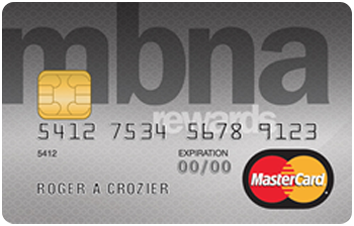 Credit Cards
Credit Cards10 credit cards with mobile device insurance in Canada
A decade ago, you probably wouldn’t have heard about insuring your cell phone. But as the cost – and necessi...

Find the right credit card.
Get StartedFocus On
Attending college or university? A student credit card might be perfect for you. The features and benefits are tailored to students actively enrolled at an academic institution. Most student credit cards have no credit history requirement, no minimum income requirement, and no annual fee. And getting a student credit card can be your first step toward building your own credit history. At LowestRates.ca, we can help you get started.
Use the table below to help you pick a student credit card. Here's a quick look at the features and benefits on some of the most popular student credit cards:
Card |  |
|---|---|
Rewards | 1 MBNA Rewards point for every $1 spent on eligible transactions. Redeem points for cash back, donations, travel, brand-name merchandise, and retailer gift cards. |
Interest rate | 19.99% |
Annual Fee | $0 |
Sign-up bonus/benefits | Not available. |
50+ trusted partners (and growing) on our site to compare mortgage rates, insurance and credit cards
$1 billion+ saved in interest and fees
14+ million Canadians helped per year
Looking for more credit card info? Check out our Help Centre.
Anyone enrolling or enrolled at an academic institution.
And getting approved for a student credit card isn't too difficult — you don't need a credit history, you don't need an income, and you typically don't even need a parent or guardian to co-sign.
But you do need a credit card to pay your day-to-day bills, especially if you live away from home. Let's face it — paying off expenses like tuition, transportation, and residence is easier with a credit card. In other words, credit cards are becoming a necessity and finding the best student credit card is more important than ever.
The best bet for budget-conscious students is a card with no annual fee. But there are a couple other things you should consider when you compare student credit cards:
Most student credit cards come with credit limits that are significantly lower (usually no more than $1,500) than the credit lines on regular cards. Student credit cards also tend to have higher interest rates and a slightly lower rewards return ratio than regular credit cards do.
Many student credit cards charge interest rates of around 20%, so try to carry a low balance and pay off your student credit card in full every month. That's the best way to dodge interest charges and build up your credit history.
You should also try to avoid withdrawing cash with your credit card. Most student credit cards have a cash advance fee, and cash withdrawals tend to have a higher interest rate than purchases do.
LowestRates.ca may receive compensation when you click on links to those products or services; however, our content and calculations are objective and free from bias. The opinions expressed are purely those of LowestRates.ca; thus, partners are not responsible for any editorials or reviews that may appear. For current term and conditions on any advertiser or partner’s product, please visit their website.
 Credit Cards
Credit CardsA decade ago, you probably wouldn’t have heard about insuring your cell phone. But as the cost – and necessi...
 Credit Cards
Credit CardsOn the face of it, a credit limit increase sounds like a no-brainer. And if your bank offers one up without the hassle o...